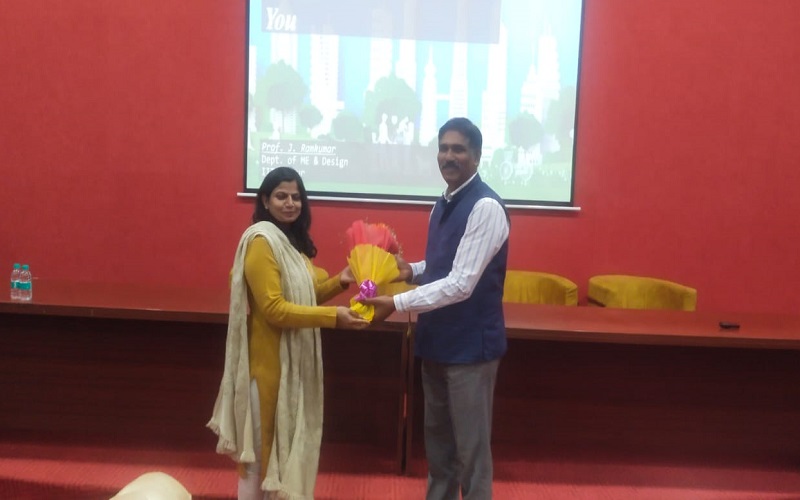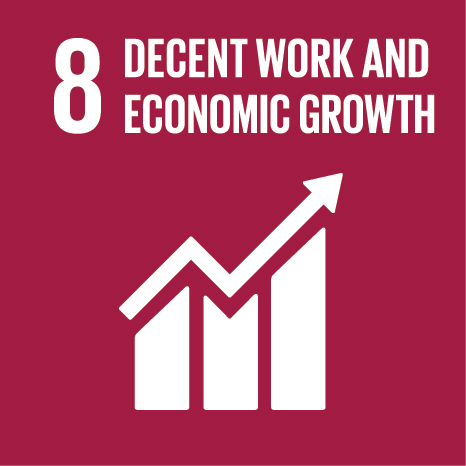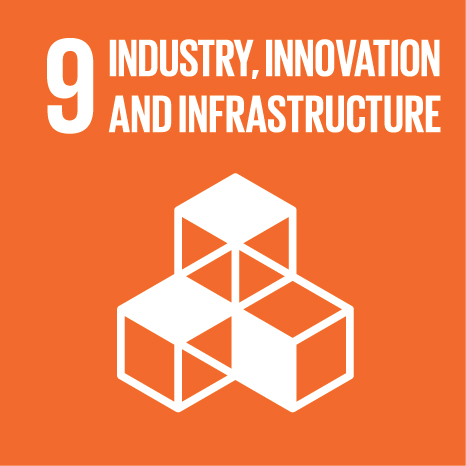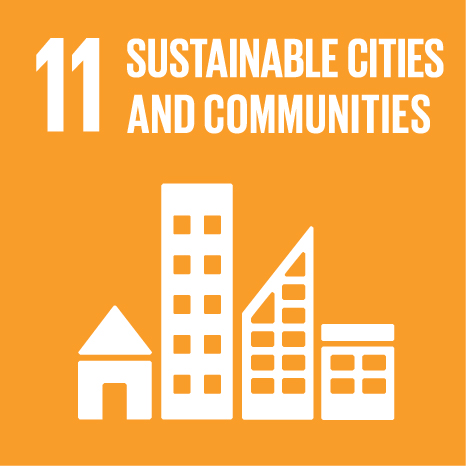Expert Talk on "Innovation and Circular Economy" by J. Ramkumar
Event Date: 22nd February 2024
The expert lecture on "Innovation & Circular Economy" given by Prof. J. Ramkumar, IIT Kanpur provided attendees with a comprehensive exploration of key concepts and practices shaping contemporary approaches to sustainable development and innovation. Delving into the intricacies of innovation, the session elucidated various types, including incremental, radical, disruptive, and open innovation, fostering a nuanced understanding among participants. Furthermore, the application of design thinking methodologies was emphasized, empowering attendees to approach problem-solving and innovation with empathy and creativity. The lecture also celebrated notable Indian innovations, showcasing indigenous success stories and inspiring the audience to harness local resources and talents for future endeavours.
The event titled "Exploring Innovation & Circular Economy: A Path Towards Sustainable Development" served by Prof. J. Ramkumar, IIT Kanpur as a platform for thought-provoking discussions and insights into the interplay between innovation and the circular economy paradigm. Hosted by [Organization/Institution Name], the event aimed to foster a deeper understanding of these concepts and their practical implications, particularly within the context of India's economic and environmental landscape.
The event commenced with an expert lecture delivered by distinguished speaker prof. J. Ramkumar renowned in their respective fields. The keynote address set the tone for the day, emphasizing the critical role of innovation in driving sustainable development and addressing global challenges such as resource scarcity and environmental degradation. Speakers delved into the nuances of innovation, delineating its various types, including incremental, radical, and disruptive innovation, and highlighting their relevance in different contexts.
A significant portion of the event was dedicated to exploring the principles and methodologies of design thinking—an approach increasingly valued for its human-centric focus and problem-solving efficacy. Attendees were guided through practical examples and case studies illustrating how design thinking can be applied to tackle complex challenges and foster innovation across diverse sectors.
One of the highlights of the event was the spotlight on Indian innovations, showcasing exemplary initiatives and solutions emerging from the country's rich tapestry of talent and ingenuity. From grassroots innovations addressing local challenges to groundbreaking technological advancements with global implications, attendees gained insights into the breadth and depth of India's innovation ecosystem.
Central to the discourse was the concept of the circular economy—a regenerative economic model aimed at maximizing resource efficiency and minimizing waste generation. Through engaging presentations and interactive discussions, participants explored the principles of circularity, including strategies for reducing, reusing, recycling, and regenerating resources throughout the product lifecycle.
A key takeaway from the event was a deeper understanding of the circular economy's potential to transform industries and economies while mitigating environmental impacts. Speakers elucidated real-world examples of circular business models and initiatives, illustrating how organizations can embrace circularity to drive innovation, enhance competitiveness, and create shared value for stakeholders.
Moreover, the event provided a holistic perspective on India's journey towards embracing the circular economy ethos. Participants gained insights into the challenges and opportunities inherent in transitioning to circular practices, as well as the role of policymakers, businesses, and civil society in driving systemic change.
In addition to knowledge dissemination, the event facilitated networking opportunities, allowing participants to connect with like-minded individuals and organizations committed to advancing innovation and sustainability agendas. Interactive workshops and breakout sessions provided platforms for collaborative ideation and problem-solving, fostering a spirit of collective action and empowerment.
In conclusion, "Exploring Innovation & Circular Economy: A Path Towards Sustainable Development" served by Prof. J. Ramkumar, IIT Kanpur as a catalyst for inspiration, learning, and collaboration, empowering participants to become agents of change in building a more resilient, inclusive, and sustainable future for India and beyond.
Mentor Name – Galgotias University
Department Name – Galgotias University




